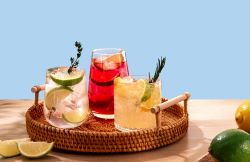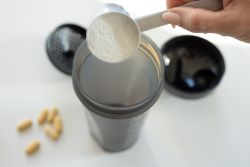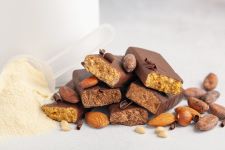
Andrzej Benkowski
Technical Manager, Probiotics & Dietary Supplements
As the Technical Manager at Eurofins Center of Excellence for Probiotics, Andrzej Benkowski brings over 18 years of expertise in biotics quality management, testing, and technology. With a strong technical background in food microbiology, Andrzej specializes in contract R&D, method development, and pioneering technologies for probiotic evaluation.
Since 2019, Andrzej has chaired the International Probiotic Association (IPA) Technical Committee and has been a member of the IPA Board of Directors since early 2024. He also contributes to the IPA Postbiotics Committee and has served as the IPA expert liaison with the International Organization for Standardization (ISO) TC34/SC9 Working Group 11 since 2022, co-convening their Enumeration Subgroup.
Andrzej is dedicated to advancing the biotics industry by setting rigorous standards and driving innovation with a focus on quality.
Outside of his professional and scientific achievements, Andrzej is a member of the Eurofins Madison Site Employee Engagement Team and manages the Community Supported Agriculture (CSA) Program for the site. A founding member of the funk band Steez, he also plays saxophone, synthesizers, and vocals. Andrzej enjoys the outdoors, spending time with his family, and pretending to be a coffee aficionado. Additionally, he has a passion for collecting sneakers and fitted hats.
Below are resources from Andrzej:
The rapid rise of mocktails and alcohol alternatives signals a deeper shift in consumer behavior. As the category matures, brands are discovering that removing alcohol is only the beginning.
As the category of sports nutrition matures, so does the science behind it, and few ingredients illustrate that shift better than creatine. Once viewed as a niche performance supplement, creatine has entered the mainstream, driven by a growing body of research, broader consumer education, and innovation in product formats.
Creating shelf-stable nutritional bars and other natural food products is about understanding the science behind food preservation, taste and appearance. One of the most critical factors in the formulation of long-lasting, safe and appealing products is water activity. Water activity plays a major role in maintaining texture, reducing the rate of fats oxidation preventing spoilage and ensuring safety from microbial growth. Keep reading to learn what is being done to create a longer shelf life.
An entrepreneurial brand wanted to develop a shelf-stable liquid formula that could deliver proven joint-supporting ingredients in a convenient, consumer-friendly format. They turned to The National Food Lab for help to bring their concept from ideation to execution with scientific rigor and market-readiness. Keep reading to find out how we handle these situations.
Explore the fast-evolving world of functional beverages with insights on formulation trends, innovation challenges, and scale-up strategies from Eurofins Product Development & Innovation.
Explore how The National Food Lab, Eurofins’ Product Development Center of Excellence, helped a start-up successfully launch a new Greek yogurt product line—blending innovation with tradition to meet evolving consumer demands.
Discover how The National Food Lab, Eurofins Product Development Center of Excellence, helped an entrepreneur turn an idea into a successful wellness brand, developing and commercializing functional herbal teas in just 10 months.
Discover how we helped a client reformulate their restaurant-crafted simmer sauces for retail success—reducing sodium from 2,000 mg to 200 mg per serving while preserving the bold, authentic flavors that made them a customer favorite.
Discover how to reduce sodium without sacrificing taste or functionality in food and beverage products. This white paper explores formulation strategies, technical insights, and best practices for achieving sodium reduction while maintaining consumer appeal.
Sugar reduction is a growing priority in product development as consumers seek to address concerns related to sugar consumption. Removing sugar from a formulation presents several challenges beyond just replacing its sweetness. This article walks through considerations that must be made for a successful sugar reduction strategy.











